|
|
|
|
Nau mai, haere mai.
There have been times recently when one could be forgiven for thinking the P in MMP stands for paradox. As Richard Shaw writes today, after three years of Labour enjoying an outright parliamentary majority but acting like a minority government, New Zealand now has three-party coalition very ready to use its numerical advantage.
This tendency has seen it pass legislation under parliamentary urgency more than any previous MMP government, instigate fast-track consenting legislation to bypass normal resource management processes, and begin cuts to public sector job numbers that will diminish the capacity of the public service “to speak truth to executive power”.
Shaw argues this is not at all how MMP was intended to work. After successive Labour and National administrations tested voter tolerance under the old first-past-the-post system, it was thought changing the electoral system “would bring the curtain down on an era of executive overreach”.
It seems there is nothing inherent within the MMP model to achieve that, however. Circumventing democratic checks and balances in the name of efficiency, and centralising executive power, are as possible now as they ever were, given the right electoral landscape.
And it comes with plenty of risk, too. “MMP was designed to strike a better equilibrium between government and the governed,” Shaw writes. “Losing that balance would contribute to the kinds of democratic erosion being seen elsewhere in the world.”
|

|
Finlay Macdonald
New Zealand Editor
|
|

Richard Shaw, Massey University
The coalition is increasingly using parliamentary urgency, cutting the public service and fast-tracking legislation – all of which risks upsetting the equilibrium between government and the governed.
|
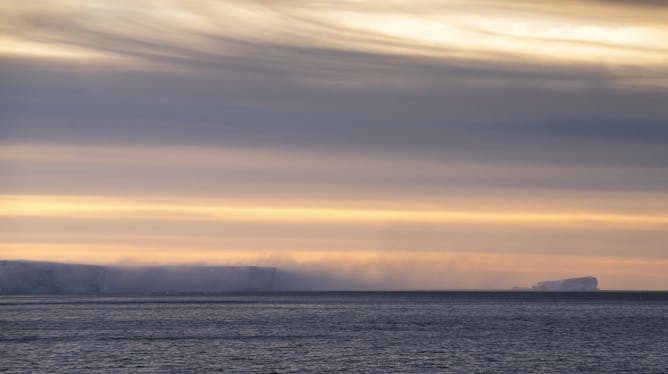
Craig Stevens, University of Auckland, Waipapa Taumata Rau
Ocean warming seems the main driver of Antarctica’s sea-ice loss. But as satellites show, the change is not universal and sea ice persists in East Antarctica and the Weddell Sea.
|

Rachel Morrison, Auckland University of Technology; Helena Cooper Thomas, Auckland University of Technology; James Greenslade-Yeats, Auckland University of Technology
A new study explains why gossip is in the ear of the beholder – the perceived motivations of the gossiper make all the difference.
|

Elizabeth Fenton, University of Otago; Esther Willing, University of Otago; Tania Moerenhout, University of Otago
Māori and Pacific people already face a disproportionate burden of influenza and a persistently reduced life expectancy. Lowering the age for free flu vaccination is essential for achieving equity.
|

Guy C. Charlton, University of New England
New Zealand’s councils are over-reliant on ratepayers to cover increasing costs. Central government needs to help support councils to do the work that helps local communities thrive.
|
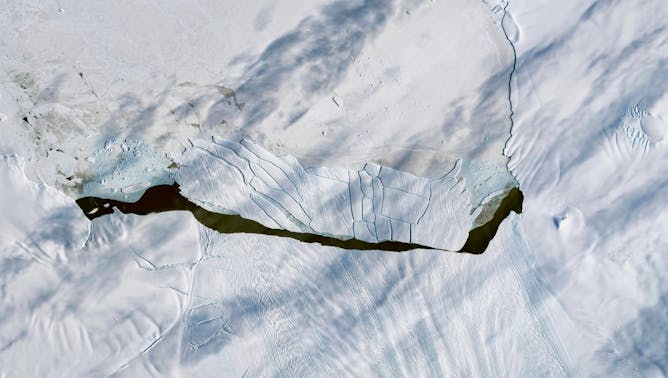
Alanna Alevropoulos-Borrill, Te Herenga Waka — Victoria University of Wellington; Nick Golledge, Te Herenga Waka — Victoria University of Wellington
Geoengineering proposals to cool the ocean would indeed reduce ice loss from West Antarctica’s glaciers, but not enough to stop sea-level rise or allow the ice sheet to regrow.
|
From our foreign editions
|

Ian Parmeter, Australian National University
US President Joe Biden’s recent warning to Israeli Prime Minister Benjamin Netanyahu has limited Israel’s options in Gaza. And neither of Israel’s war objectives appear to have been met.
| |

Marcus Lower, CSIRO; Gregory Desvignes, Max Planck Institute for Radio Astronomy; Patrick Weltevrede, University of Manchester
Astronomers caught the bizarre ‘awakening’ of an incredibly rare magnetic star.
|

Dima Nazzal, Georgia Institute of Technology
The Palestinian enclave faces an interconnected series of crises that will amplify the human costs of conflict even when the bombing ends.
| |
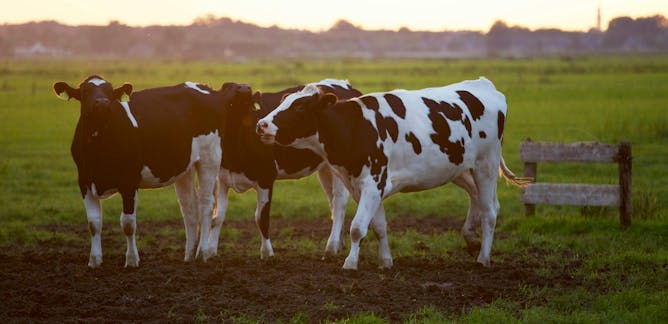
C Raina MacIntyre, UNSW Sydney; Ashley Quigley, UNSW Sydney; Haley Stone, UNSW Sydney; Matthew Scotch, Arizona State University; Rebecca Dawson, UNSW Sydney
For now there’s no spread of H5N1 between humans, which is good news. But bird flu is evolving, and we need to stay vigilant.
|

Sergey Katsuba, University College Dublin
Thirty years after homosexuality was decriminalised in Russia, new laws making ‘gay propaganda’ an offence are criminalising being gay.
| |
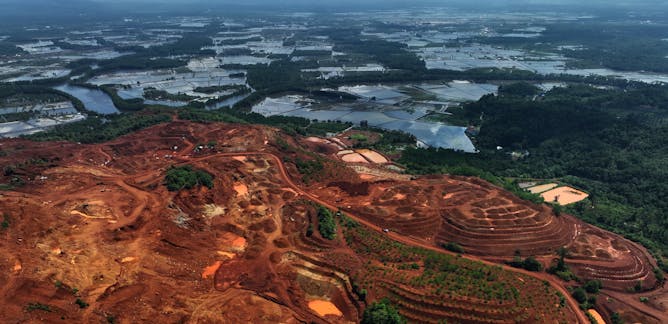
Robby Irfany Maqoma, The Conversation; Anggi M. Lubis, The Conversation
Controversies haunt Indonesia’s ambition for nickel processing. It’s time Indonesia move away from supplying electric vehicle battery material narrative and focus on sustainability.
|
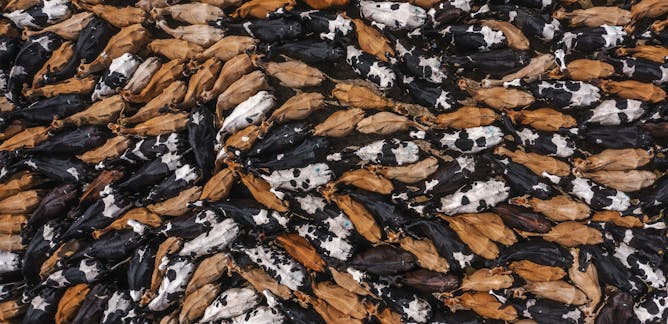
Yolandi Ernst, University of the Witwatersrand; Sally Archibald, University of the Witwatersrand
Knowing which parts of Africa best help to store carbon means funding and policy efforts can be directed to protecting and increasing this carbon ‘land sink’.
| |

Ariell Ahearn, University of Oxford; Dawn Chatty,, University of Oxford
The largest farm, in the UAE, has more than 10,000 camels.
|
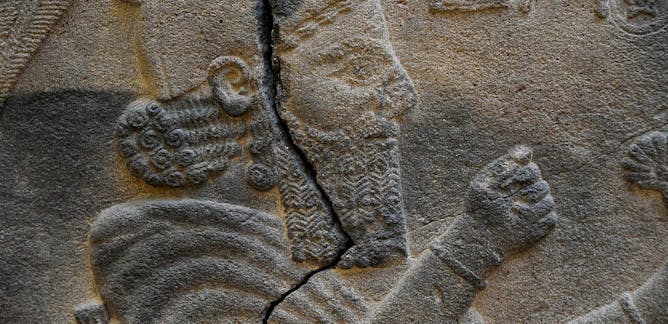
Daryn Lehoux, Queen's University, Ontario
To protect their kings, ancient Mesopotamians discovered how to predict eclipses, which were associated with the deaths of rulers. This eventually led to the birth of astronomy.
| |
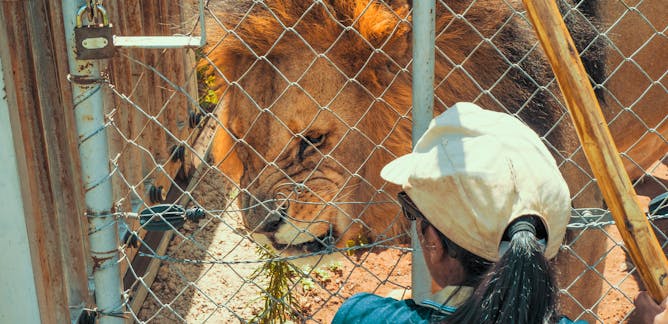
Neil D’Cruze, University of Oxford; Angie Elwin, Manchester Metropolitan University; Jennah Green, Manchester Metropolitan University
The South African government has finally decided to shut down the captive lion industry, but has not set a deadline for when lion breeding and hunting will end.
|
|
|
| |
| |
| |

|
| |
| |
| |
| |
| |
| |
|
|
|
|
|
|
|